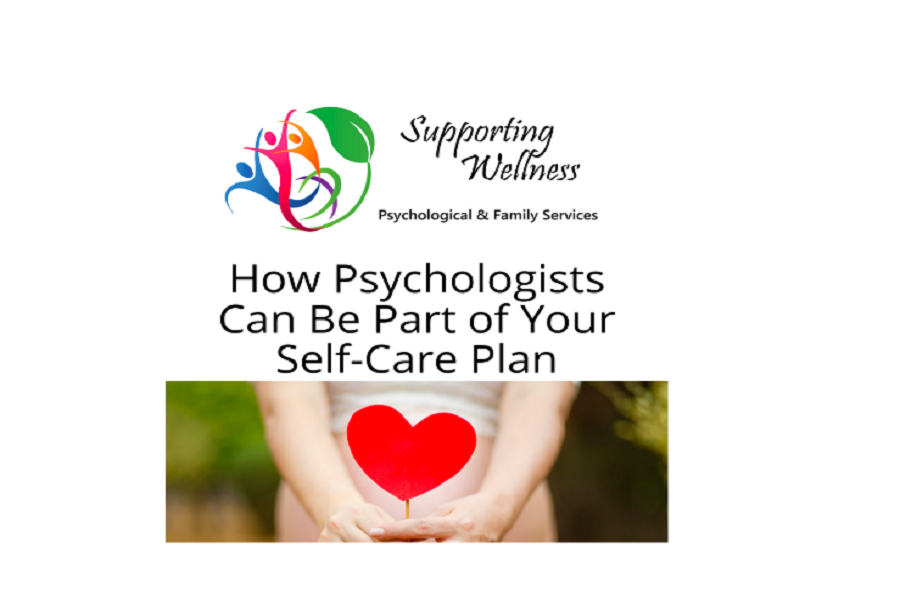EMDR therapy is a tool that psychologists in Calgary and other trained providers use to help you heal from past trauma. This can include things like being in a car accident, experiencing violence or surviving a natural disaster. Events like these are often deeply disturbing and impact a person’s sense of control over a situation. Trauma can also be caused by smaller events or experiences, often referred to as ‘small t’ trauma, that surpasses your ability to cope with a situation. These can include divorce, financial difficulties or ongoing conflict with a loved one. EMDR, which stands for Eye Movement Desensitization and Reprocessing, therapy is well researched and endorsed by the American Psychiatric Association, the World Health Organization and the United States Department of Veteran Affairs. EMDR therapy can quickly improve symptoms related to trauma, including flashbacks, nightmares, avoidance of people or places that are triggering, emotional numbness, and irritability or anger. If you’re considering EMDR therapy in Calgary to …
How EMDR Therapy Can Help You Heal from Past Trauma
You may have heard of EMDR therapy somewhere online, in passing a conversation on the street, or from a friend. In recent years this form of psychotherapy has moved into the mainstream as an effective tool psychologists in Calgary and other trained providers have at their disposal for helping to heal past trauma. There is more and more attention being paid to previous trauma and its impact on our everyday mood and emotions. Over the last few years, there have been scientific studies published that show a direct link between traumatic events and brain development in children. In adults, traumatic events can have a long term lasting impact on the ability to cope with everyday life. Healing from previous trauma is a difficult process, but with EMDR therapy it’s possible to regain a sense of peace and control in your life. What is EMDR Therapy? EMDR stands for Eye Movement Desensitization and Reprocessing and it’s a powerful tool for helping …
How Psychologists Can Be Part of Your Self-Care Plan
It can be hard to balance the demands of daily life and take care of your own health at the same time. We tend to focus on the needs of others, whether it’s our kids, partners, other family, and friends, well before our own. Between responsibilities at work and at home, and the constant push to get more done, you can be left feeling drained and overwhelmed. You can help address this by prioritizing your health, including your mental health, and psychologist services can be an important part of a larger self-care plan. Self-care is a term used to describe activities that we do to promote and nurture our health. These can be things like getting enough sleep, eating a balanced diet, exercise, regular relaxation, managing stress – and seeing a psychologist on a regular basis. Establishing an effective self-care plan that includes regular visits to a psychologist in Calgary, gives you the chance to build a trusting relationship with …
Top 3 Reasons to Say YES to Mental Health
Almost all of us turn to a loved one for advice when we are going through a rough patch in life. That may provide you some solace but the issue or the pattern keeps coming back to you. These issues mostly include depression, anxiety, stress, relationship issues and career issues. Mental health services can help you identify and resolve these issues. Mental health practitioners include psychologists, therapists and counselors. Here are the top reasons why mental health services are so important to a healthy, happy life. Mental Health Services improve the quality of life Mental health services help to overcome depression, anxiety, stress, addictions and other psychological problems. This enables you to live life to the fullest. Mental Health Helps to: 1. Have healthy relationships 2. Make good life choices 3. Maintain physical health and well-being4. Handle the natural ups and downs of life5. Discover and grow toward our potential Mental Health Treatment Can Reduce Medical Costs Excessive anxiety and …
Supporting Wellness is Growing!
We are pleased to announce our new location in Cold Lake, Alberta. You can our new location and the services here. Kate Kolsog Cold Lake Psychologists & Therapists Kate Kolskog Registered Psychologist Whitney Huckstep Registered Psychologist
Child Behavior: When nothing else works, consider these 7 strategies:
Child Behavior: When nothing else works, consider these 7 strategies: Gary Direnfeld, MSW, RSW Parents are saying discipline, consequences, time out and stickers don’t work. Parents are presenting as more and more defeated when it comes to managing the behavior of their children. They have a long list of tried that – didn’t work scenarios including many of the more popular parenting programs. What’s up with that? Why does it seem near impossible to get kids to listen? What can parents do differently? To know what to do differently, we first need to appreciate what’s at play creating challenges out of children’s behavior and undermining parental authority. This brief history of the world is needed – or at least a brief history of the past 70 years. It goes like this: 1950’s: Intact two parent families with a primary breadwinner and a primary homemaker; 1960’s: Women’s Movement begins and gender equality begins to be examined publicly; 1970’s: No-fault divorce appears in many …
The ADHD Homework System That (Really) Works
The ADHD Homework System That (Really) Works Homework stress is real — and exhausting for parents and students alike. Spare your family the drama and fights by following this six-step homework system designed for children with ADHD and learning disabilities. Homework requires children with ADHD to copy assignments correctly, bring home the right books, keep track of due dates and hand in finished work — all difficult for anyone with poor memory, focus, or attention to detail. While it may take a few months to become a habit, creating consistent routines at home and at school will result in better work skills, a sense of accomplishment, less homework stress — and lots of after-school smiles.
It’s not just hormones
It’s not just hormones A teenage girl is a force of nature, with emotions so powerful they shock even her. In this exclusive excerpt, psychotherapist Lisa Damour uses neuroscience to help parents – and anyone perplexed by teenage girls – understand what’s really going on in their heads. The following is an excerpt from the book Untangled by Lisa Damour, Ph.D. When I was in my first semester of graduate school, the professor teaching my psychological testing course handed me a stack of Rorschach inkblot tests to score. Before sending me on my way, he offhandedly said, “Double-check the age of the person whose test you are scoring. If it’s a teenager, but you think it’s a grown-up, you’ll conclude that you have a psychotic adult. But that’s just a normal teenager.” Twenty years later, I don’t need to score inkblot tests to know that healthy teenage development can look pretty irrational. Parents tell me about it every day. They describe how a minor …
How Well Do You Truly Know Your Kids?
How Well Do You Truly Know Your Kids? Gary Direnfeld, MSW, RSW I had the pleasure of talking with middle school students in three groups: grade sixes; grade sevens; and grade eights. Each group had about 70 students. Their teachers and principal were present for the talk. The talk was actually a dialogue between me and students, asking about the issues they grapple with as students, issues that may at times interfere with their ability to concentrate in class. All three grades identified bullying. A show of hand poll demonstrated about 90% of all students experienced some form of bullying. Interestingly, about 80% indicated they had bullied others. About 15% of students indicated that as a result of bullying, they had trouble concentrating at school. Virtually no one confronted their bully. About 3% of students would tell their parents about being bullied. Cyber bulling emerged as the greater form of bullying moving from grade six to eight. Beyond bullying, students …
Talking to Children About Violence: Tips for Parents and Teachers
Talking to Children About Violence: Tips for Parents and Teachers High profile acts of violence, particularly in schools, can confuse and frighten children who may feel in danger or worry that their friends or loved-ones are at risk. They will look to adults for information and guidance on how to react. Parents and school personnel can help children feel safe by establishing a sense of normalcy and security and talking with them about their fears. 1. Reassure children that they are safe. Emphasize that schools are very safe. Validate their feelings. Explain that all feelings are okay when a tragedy occurs. Let children talk about their feelings, help put them into perspective, and assist them in expressing these feelings appropriately. 2. Make time to talk. Let their questions be your guide as to how much information to provide. Be patient; children and youth do not always talk about their feelings readily. Watch for clues that they may want to talk, such as …



